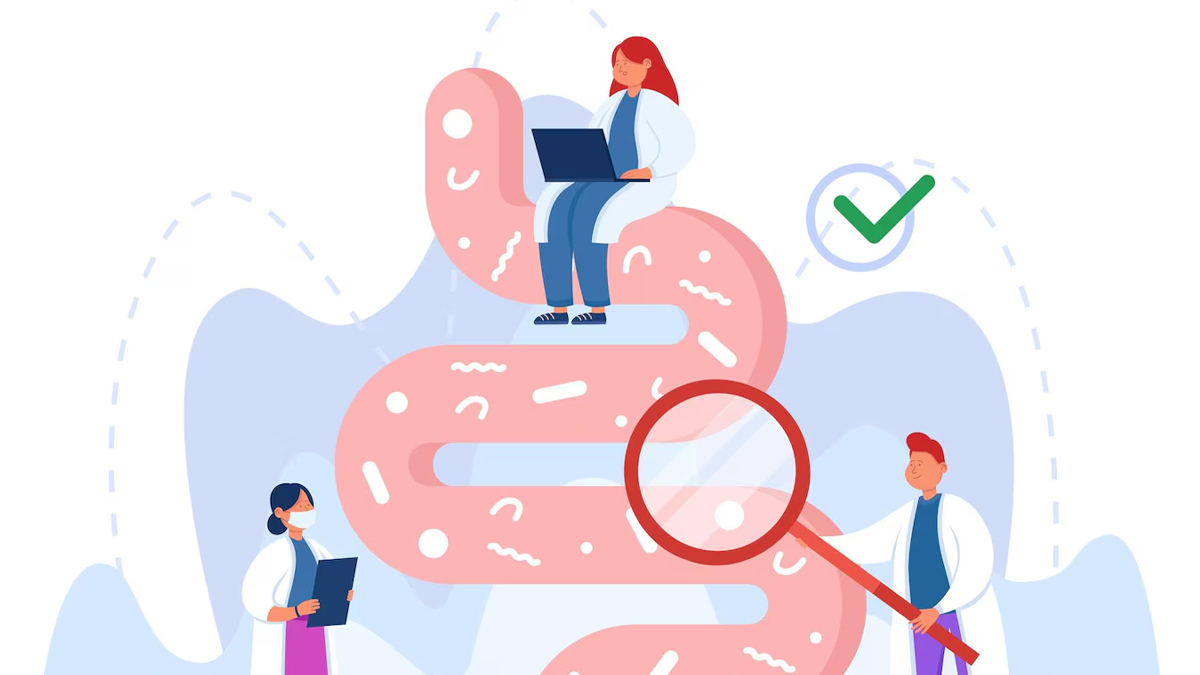
When most people think about hormone imbalances, they picture ovaries, the thyroid, or the brain. They rarely think about the gut. But as science advances, we are beginning to realise how central digestion is to hormonal health, especially in women. From erratic cycles and thyroid issues to fatigue and mood changes, many of these symptoms may begin in the gut. The connection isn’t always obvious, but it’s real, and more common than we think.
Table of Content:-
We spoke to Dr Vrinda Agrawal, Consultant Endocrinology, CARE Hospitals, Banjara Hills, Hyderabad, who explained the link between gut and hormonal health.
Your Gut Does More Than Digest

“The gut isn’t just a place where food is broken down. It’s a busy, active environment that houses trillions of bacteria called the gut microbiome. These microbes help us absorb nutrients, regulate inflammation, and interestingly, play a part in how hormones are produced, broken down, and eliminated,” said Dr Agrawal.
When your gut is in good shape, it supports smoother hormonal function. However, if there’s an imbalance, caused by stress, poor diet, frequent antibiotics, or even infections; it can throw your hormones out of sync.
Oestrogen and the Gut: A Two-Way Street
One of the key roles the gut plays is in regulating oestrogen. “After oestrogen is used by the body, it has to be broken down and cleared out. That happens through the liver and the gut. But if your digestion is sluggish, or the gut bacteria aren’t balanced, oestrogen can get reabsorbed instead of being eliminated. This can lead to something known as oestrogen dominance, where levels are too high concerning other hormones like progesterone,” explained Dr Agrawal.
Women with oestrogen dominance often experience heavy periods, bloating, breast tenderness, or mood swings. And the tricky part? Many of them are told these symptoms are 'just part of being a woman.' In reality, a sluggish gut could be playing a big part and improving digestion may help in balancing oestrogen levels.
Also Read: When Gut Issues Stem From The Spine: Expert Explains Viscerosomatic Reflexes
PCOS and the Gut Connection
Polycystic Ovary Syndrome (PCOS) is usually thought of as a reproductive issue, but it’s deeply linked with metabolism and inflammation, both of which tie back to gut health.
Women with PCOS often have differences in their gut bacteria compared to women without it. This imbalance may increase insulin resistance and low-grade inflammation, which are two major features of PCOS, according to a 2023 study.
Making changes to support gut health, such as cutting back on refined sugar, increasing fibre, and including probiotics, can help improve insulin sensitivity and even support better ovulation over time. It’s not a magic cure, but for many women, it’s a meaningful step in the right direction.
The Thyroid-Gut Axis
Thyroid function is another area where the gut has a say. Your thyroid hormones depend on certain nutrients, including iodine, selenium, and zinc, which need to be absorbed in the digestive tract. If your gut isn’t absorbing nutrients efficiently, thyroid function may drop, even if your blood work looks 'borderline.'
“Autoimmune thyroid conditions, such as Hashimoto’s, are also tied to gut health. Intestinal permeability, often referred to as 'leaky gut,' is now believed to be a contributing factor in many autoimmune conditions.
Taking steps to reduce inflammation in the gut may help calm down the immune system, giving the thyroid a better chance to function well,” added Dr Agrawal.
How Do You Know It’s Your Gut?
You may not think your digestion is a problem, but the clues are sometimes subtle. Women often report fatigue, bloating, brain fog, or feeling 'off' before their period. Others notice that their skin flares up, or that their moods swing more than usual.
If these symptoms are combined with digestive issues, such as constipation, loose stools, gas, or food intolerances, it’s worth paying attention. The gut and hormones are in constant communication, and when one falls out of balance, the other often follows.
Also Read: Can Brain Fog Lead To Poor Gut Health? Expert Shares Warning Signs
What Does The Expert Say?
“As someone who works with patients experiencing fatigue, brain fog, sleep problems, and mood disorders, I often find that the answer isn’t always in the brain alone. Gut health plays a subtle but powerful role in the production of neurotransmitters, management of inflammation, and transmission of hormonal messages in the nervous system,” shared Dr Agrawal.
“That’s why I always encourage women with long-standing hormonal complaints to look beyond hormones, and start looking at their digestion, too,” she added.
What You Can Do
If you're dealing with hormonal ups and downs, here are a few gentle steps to support your gut:
- Eat whole foods: Focus on fibre, vegetables, and healthy fats. These feed good bacteria.
- Cut back on sugar and processed carbs: They can feed the wrong microbes and raise insulin levels.
- Add fermented foods: Yoghurt, kefir, and pickled vegetables can boost your microbiome.
- Prioritise rest and regular meals: Skipping meals and staying up late disrupt digestion and hormone rhythms.
- Listen to your symptoms: Your body often gives subtle clues long before blood work does.
Bottomline
Dr Agrawal concluded, “Hormonal balance doesn’t start with a hormone prescription. It begins with understanding how systems in the body connect, especially the digestive system. If your gut isn’t happy, chances are your hormones won’t be either. By supporting digestion with real food, stress management, and awareness, women can begin to feel more stable, physically, emotionally, and hormonally. It's not a quick fix, but it's often the foundation for lasting change.”
[Disclaimer: This article contains information provided by an expert and is for informational purposes only. Hence, we advise you to consult your professional if you are dealing with any health issue to avoid complications.]
Also watch this video
How we keep this article up to date:
We work with experts and keep a close eye on the latest in health and wellness. Whenever there is a new research or helpful information, we update our articles with accurate and useful advice.
Current Version